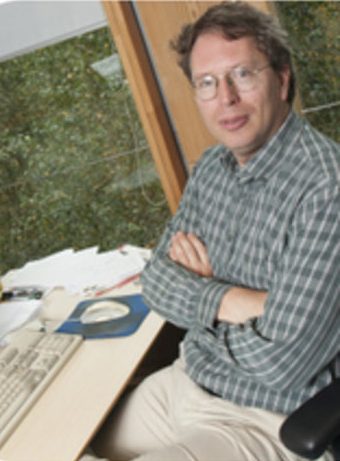All times are CET
Thursday, May 23rd, 2024
| 16:30 – 16:45 | Opening |
| 16:45 – 17:30 | Keynote |
| 17:30 – 18:30 | Technical Session 1 |
| 18:30 | Welcome Reception |
Friday, May 24th, 2024
| 8:30 – 9:15 | Technical Session 2 |
| 9:15 – 10:30 | Panel 1 |
| 10:30 – 11:00 | Coffee Break |
| 11:00 – 12:30 | Embedded Tutorial |
| 12:30 – 14:00 | Lunch Break |
| 14:00 – 15:00 | Technical Session 3 |
| 15:00 – 16:00 | Panel 2 |
| 16:00 | Closing |
Thursday, May 23rd, 2024
16:30 – 16:45 Opening
Yervant Zorian (Synopsys, US)
Davide Appello (Technoprobe, IT)
Riccardo Cantoro (Politecnico di Torino, IT)
Wim Dobbelaere (onsemi, BE)
16:45 – 17:30 Keynote
The Road to Total Quality: long, challenging, interesting and rewarding
Bram Kruseman (NXP, NL)
Abstract: The semiconductor industry reached remarkable quality levels of far better than 1 DPPM for automotive ICs. What is even more impressive is that these quality levels continue to improve despite the growing transistor count on a single IC and the increasing complexity of technology. This journey towards total quality has been a long one, achieved only through countless small steps based on continuous improvement.
This talk gives an overview of this long road and looks ahead at some of the challenges we face owing to electrification and stringent safety standards. Fortunately, amidst these challenges lie new opportunities. Automotive systems will have advanced signal-processing capabilities and high-bandwidth communication, enabling sophisticated data analysis that extends beyond individual vehicles. This, in turn, can be used to improve functional safety and identify reliability risks.
These advancements by the semiconductor industry not only enhance driving convenience but, more critically, bolster safety. An illustration of this progress can be found in the Netherlands, where improved car safety has drastically reduced automotive fatalities from over 600 in the nineties to fewer than 200 today.

Bram Kruseman received his MSc in Physics from the University of Technology in Eindhoven, the Netherlands, and his PhD from the University of Technology in Delft, the Netherlands. In 1998 he joined Philips Research, with as main research topic: defect-oriented test for digital. His research activities consisted of a mix of defect simulations, implementing new test methods, yield data analysis, and designing dedicated ICs to evaluate the effectiveness of different test methods (VLV, IDDQ and delay-fault testing). In 2006 Philips spun-off its semiconductors division as NXP Semiconductors. At NXP Bram was product manager of process related test and was responsible for the central research and development activities on test methods for analog and mixed signal designs, yield and diagnosis. Presently, he holds the position of director in NXP’s Design Enablement/Front-End He is author/co-author of 50 papers in the field of material science/IC testing and received the silver NXP Invention of the year award in 2006.
17:30 – 18:30 Technical Session 1
Moderator: Leticia Bolzani Pöhls (Aachen University)
- Pre-Analysis for ATPG Pattern Failures
Ric Dokken, Gerald Chan (Roguevation), Vincenzo Tancorre (STMicroelectronics) - Golden Signature Extraction and Test Configuration for Hardware IP Cores
Fatemeh Mohammadzadeh, Katayoon Basharkhah, Zainalabedin Navabi (University of Tehran) - Exploiting Device Tree Source for automatically generating System-Level Test applications
Francesco Angione, Paolo Bernardi (Politecnico di Torino), Claudia Bertani, Vincenzo Tancorre (STMicroelectronics) - Stress stimuli during System-Level-Test: a monster ADAS SoC case study
Paolo Bernardi, Giusy Iaria (Politecnico di Torino), Claudia Bertani, Morgan Lombardo, Vincenzo Tancorre (STMicroelectronics)
Friday, May 24th, 2024
8:30 – 9:15 Technical Session 2
Moderator: Georges Gielen (TU Leuven)
- Concurrent CPU-based Mixed-Signal Testing
Giuseppe Valerio Greco, Simone Mariani, Stefano Roggi, Christian Kupnick (Infineon) - Near-Field Scanning Applied to Automotive Use-Cases and the Combination with Field Simulations
Dominik Schröder, Christian Hedayat, Alexander Weiß and Harald Kuhn (Fraunhofer ENAS) - A Novel Approach to Testing Autonomous Driving Radar Devices
Jeorge Hurtarte, Steve Pruitt (Teradyne)
9:15 – 10:30 Panel 1
Automotive IP re-use for lowest cost, best quality and shortest development time
Moderator: Wim Dobbelaere (onsemi)
Panelists:
- Vladimir Zivkovic (Siemens)
- Renaud Gillon (Sydelity)
- Lei Ma (NXP)
- Jyotika Athavale (Synopsys)
- Georges Gielen (KU Leuven)
10:30 – 11:00 Coffea Break
11:00 – 12:30 Embedded Tutorial
Automotive in-field reliability challenges
Presenter: Jyotika Athavale (Synopsys)
Moderator: TBA
12:30 – 14:00 Lunch break
14:00 – 14:45 Technical Session 3
Moderator: Renaud Gillon (Sydelity)
- Towards an Open Software Test Library Framework: Impact on Automotive Functional Safety
Francesco Angione, Michelangelo Bartolomucci, Riccardo Cantoro, Matteo Sonza Reorda (Politecnico di Torino), Luca Benini (ETH Zürich), Davide Rossi, Riccardo Tedeschi (Università di Bologna)
- ZOE: Zero Overhead ECC Technique for Protection NAND Flash Memory of DNN Accelerators
Shyue-Kung Lu (National Taiwan University of Science and Technology) - A Novel Machine Learning-based Fault Shape Classification for Memories Embedded In Automotive Systems-on-Chip
Giorgio Insinga, Paolo Bernardi, Annachiara Ruospo (Politecnico di Torino), Rudolf Ullmann, Matteo Coppetta (Infineon)
14:45 – 16:00 Panel 2
TBA
16:00 Closing
Yervant Zorian (Synopsys, US)
Davide Appello (Technoprobe, IT)
Riccardo Cantoro (Politecnico di Torino, IT)
Wim Dobbelaere (onsemi, BE)
